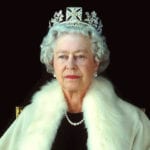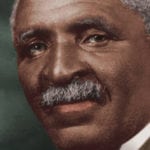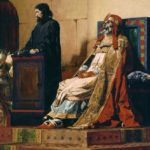 Movies and TV
Movies and TV  Movies and TV
Movies and TV  History
History 10 Extreme Laws That Tried to Engineer Society
 History
History 10 “Modern” Problems with Surprising Historical Analogs
 Health
Health 10 Everyday Activities That Secretly Alter Consciousness
 History
History Top 10 Historical Disasters Caused by Someone Calling in Sick
 Animals
Animals 10 New Shark Secrets That Recently Dropped
 Movies and TV
Movies and TV 10 Forgotten Realities of Early Live Television Broadcasts
 Technology
Technology 10 Stopgap Technologies That Became Industry Standards
 Weird Stuff
Weird Stuff 10 Wild Facts About Taxidermy That You Probably Didn’t Know
 Travel
Travel 10 Beautiful Travel Destinations (That Will Kill You)
 Movies and TV
Movies and TV 10 Box Office Bombs That We Should Have Predicted in 2025
 History
History 10 Extreme Laws That Tried to Engineer Society
 History
History 10 “Modern” Problems with Surprising Historical Analogs
Who's Behind Listverse?

Jamie Frater
Head Editor
Jamie founded Listverse due to an insatiable desire to share fascinating, obscure, and bizarre facts. He has been a guest speaker on numerous national radio and television stations and is a five time published author.
More About Us Health
Health 10 Everyday Activities That Secretly Alter Consciousness
 History
History Top 10 Historical Disasters Caused by Someone Calling in Sick
 Animals
Animals 10 New Shark Secrets That Recently Dropped
 Movies and TV
Movies and TV 10 Forgotten Realities of Early Live Television Broadcasts
 Technology
Technology 10 Stopgap Technologies That Became Industry Standards
 Weird Stuff
Weird Stuff 10 Wild Facts About Taxidermy That You Probably Didn’t Know
 Travel
Travel 10 Beautiful Travel Destinations (That Will Kill You)
10 Major Historical Figures And Their Failed Attempts At Writing
Everybody thinks they have a great novel in them. Most never get around to writing it, but some chance the rejection and put their thoughts on paper, mostly without commercial success.
We tend to think of these people as destined to toil in lonely isolation, forever unknown. However, before they made their marks on history, some of the biggest names imaginable sat down and tried to churn out a great work of literature—usually with disastrous results.
10 Saddam Hussein’s Epic Adventure Novels

When Iraqi dictator Saddam Hussein wasn’t busy massacring hundreds of thousands of Kurds, he was relaxing at his palace, indulging in his favorite hobby: writing epic adventures in ancient Babylon.
You might struggle to find Hussein’s books at your local library, but in Iraq, he was surprisingly successful. The dictator wrote four novels before he died, and each one sold millions of copies. Readers across Iraq loved his books so much that they couldn’t put them down—presumably under pain of death.
His most popular book, Zabibah and the King, was adapted into a 20-part TV series and even an “off-Broadway” musical. It’s a thinly veiled allegory that uses the story of a Babylonian princess to talk about how terrible America is. The villain is a greedy rapist who clearly represents the United States. In the end, the characters start an annual tradition of stoning the bad guy’s grave every January 17—which is the anniversary of the beginning of Operation Desert Storm.[1]
Hussein’s later books are even less subtle. His last one, which he wrote shortly before his death, had the fairly blunt title of Begone Demons! It was about a Jewish conspiracy to team up with Christians to kill Muslims. In the end, the Muslims save the day by toppling two large, almost twin-like towers.
“He thought he was a god who could do anything, including writing novels,” said Saad Hadi, one of the men who helped to cowrite Hussein’s novels.
9 Karl Marx’s Short-Lived Career As A Comedian
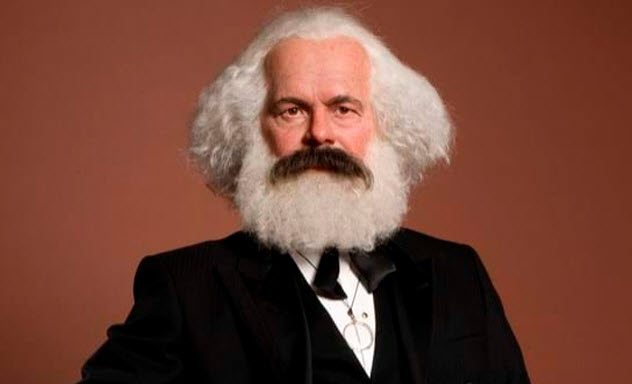
Before he became the father of communism, Karl Marx was pretty sure he was going to make it as a comedian.
As a young man, Marx wrote a comedy novel called Scorpion and Felix, and it’s every bit as funny as you’d imagine a novel would be from the guy who wrote The Communist Manifesto.
The novel didn’t exactly take off, despite being full of hilarious observations like this one: “That last sentence . . . was an abstract concept, and therefore not a woman, for, as Adelung exclaims, an abstract concept and a woman, how different they are!”[2]
That’s one of the book’s stronger jokes. The novel has a lot going on—it breaks the fourth wall, it makes an obscure reference to German grammarian Johann Christoph Adelung, and it really makes you reflect on how, when you think about it, women and abstract concepts really are entirely different things. And yet, believe it or not, Marx couldn’t find anyone willing to publish his book.
Marx was crushed when he realized that he wasn’t going to make it as a comedian. He called it a “shattering blow [that felt like] a curtain had fallen” on all of his dreams. And so, instead, he settled for a simple, unglamorous life of making the ruling classes tremble at the loosening of the proletariat’s chains.
8 Pope Pius II’s Erotic Best Seller
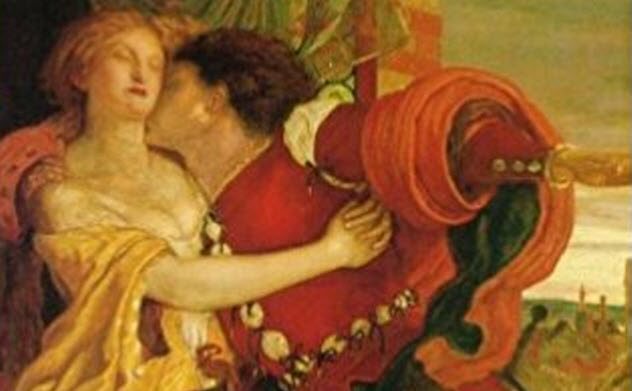
The sexiest, most erotic thriller of the 15th century was written by none other than the Pope himself.
Before he became the supreme pontiff of the Catholic Church, Pius II made his living writing smut. He was known for writing poems that have been called “mildly pornographic.” His best-known work, though, was a novel called The Tale of Two Lovers. If it had been released today, this erotic sexcapade would be sold in a plastic bag on a shelf out of children’s reach next to this month’s Penthouse Forum.
The Pope’s novel is about two lovers who hook up at a funeral after giving each other flirty looks over a dead man’s corpse. Though the woman is married, they begin a steamy, illicit affair behind her husband’s back.[3]
The Pope admitted that the novel was at least partly autobiographical. Rumor had it that the cuckolded husband in the story was based on Mariano Sozzini, the man who published the book. Which means that the future Pope handed his publisher a book about how he was sleeping with the guy’s wife.
After he became Pope, Pius II tried to get every copy of his novel destroyed, but it was no use. It was already a best seller, and now that the author had become the holiest man in the Catholic Church, there was a copy in every home.
7 Eleanor Roosevelt: Crime-Solving Detective
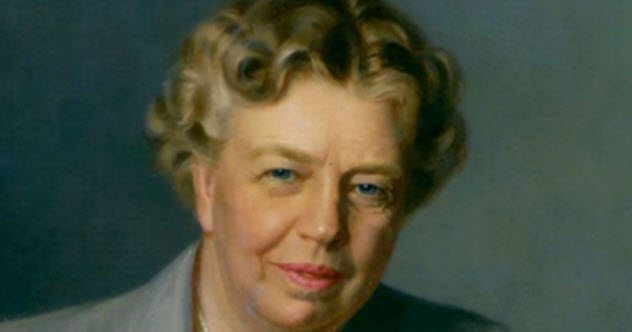
Elliott Roosevelt, the son of Eleanor and Franklin D. Roosevelt, made a name for himself as an author, but he almost exclusively wrote about one weirdly specific thing. He liked to pen novels starring his mom—specifically, stories about his mom solving murder mysteries in the White House.
Elliott wrote a whole series of novels about Eleanor Roosevelt solving crimes. There are 20 books in the series, all of which pretty much follow the exact same story line.
There’s Murder in the Oval Office, Murder in the Lincoln Bedroom, Murder in the West Wing, Murder in the East Room, and even Murder at the President’s Door. And then there’s one, clearly written when he was running out of places in the White House where people could get murdered, called The White House Pantry Murder.[4]
They even kept the series going after Elliott died. His publisher said that they had found Elliott’s notes planning out future novels—which, presumably, was just a napkin that said, “Murder in the Situation Room? Press Briefing Room? Murder on the President’s John?”
6 Winston’s Churchill’s Alternate History Story
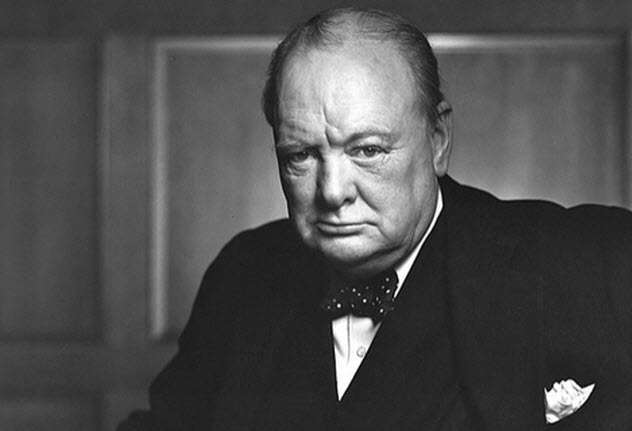
Winston Churchill wrote an alternate history story about what would have happened if the Confederate Army had won the US Civil War—and it’s weirdly racist.
Churchill’s story, “If Lee Had Not Won The Battle of Gettysburg,” is written from the perspective of a historian in an alternate world where the Confederate Army won the Civil War. He is contemplating how life could have been different.
“Let us only think what would have happened,” Churchill’s narrator muses, “[if the world had started listening to] some idiotic assertion of racial equality.”[5]
There isn’t even a drop of irony in that line. Churchill immediately follows it with a rant about how stupid he thinks it is to “graft white democratic institutions upon the simple . . . African race,” whom he says belongs “to a much earlier chapter in human history.”
The moral of Churchill’s story is that the whole world would have been a better place if it hadn’t been for that pesky Abraham Lincoln fellow. In his alternate reality, the British Empire ends up bringing both American nations back into the British Commonwealth. Together, they stop World War I from ever happening. And everyone lives happily ever after.
Well, except for the black people. But, anyway, the white people are happy.
5 Muammar Gadhafi’s Short Story Collections

Colonel Muammar Gadhafi, the self-proclaimed “Brotherly Leader and Guide of the Revolution of Libya,” published two collections of short stories. Unlike the prose by Hussein, it’s generally agreed that Gadhafi really did write the words himself.
His stories have been described as “surreal rants and bizarre streams of consciousness obviously unmolested by the hand of any editor,” which is fairly accurate.[6]
In one, he mostly describes a city by listing how many children have died in it. “Yesterday, a young boy was run over in that street,” Gadhafi writes. “Last year, a speeding vehicle hit a little girl crossing the street, tearing her body apart. They gathered up her limbs in her mother’s dress. Another child was kidnapped by professional criminals.”
Another story, “Suicide of the Astronaut,” is about Gadhafi’s belief that space travel is ridiculous. In this tale, an astronaut goes to the Moon. When he realizes there’s nothing there, he goes home and kills himself because he has squandered his life by going into space, which is a stupid waste of time.
4 Kim Jong Il’s Revolutionary Operas

Kim Jong Il wrote an incredible six separate operas. According to what we’ve been assured is a completely unbiased review by the North Korean government, every one of them is “better than any in the history of music.”
His most popular is a chipper little story called Sea of Blood, an opera that he apparently cowrote with his father, Kim Il Sung. It’s about a heroic Korean mining village trying to resist their Japanese oppressors.
The Japanese occupation of Korea is the setting for almost all his operas, and the depictions are usually cruel and vicious. In The Flower Girl, a young girl with a dead father and a blind sister sings on the street so that she can buy medicine for her dying mother. Those wily Japanese, though, are infuriated that she’d give medicine to a dying woman. So they kill her mother and her blind sister and throw the girl in prison.[7]
It’s all rather bleak. But surprisingly, Kim Jong Il’s operas aren’t just big in North Korea. In China—where the Japanese occupation was at its most brutal—the great dictator’s operas sell out every time they’re played. As it turns out, if a group of people hates the Japanese enough, they’ll watch anything.
3 Napoleon Bonaparte’s Romance Novel
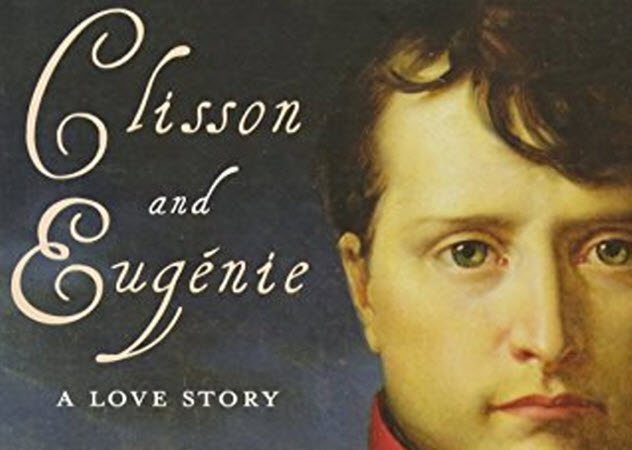
About 10 years before declaring himself emperor of France, Napoleon Bonaparte tried to make it as a romance novelist. He wrote a novella called Clisson et Eugenie, which is just a 100-page rant about why Napoleon’s girlfriend should never have broken up with him.
That girlfriend was Desiree Eugenie Clary, Napoleon’s first great love. She was the sister of his brother’s wife, and while Napoleon was in the military, they dated for about a year. Napoleon even asked her to marry him, although it didn’t work out.
His novella is clearly about Eugenie Clary. He didn’t even bother changing the heroine’s name. In the story, Eugenie is introduced as the “less attractive sister” of a better woman. She cruelly leads on Clisson, a noble, decent soldier. Then Eugenie cheats on Clisson with another man.[8]
It ends with Clisson heroically volunteering to fight in the front lines, hoping to die a hero’s death in battle. It takes Napoleon 100 pages to tell Eugenie that she’d feel awful about breaking his heart if he died.
2 Johannes Kepler’s Science Fiction Novel
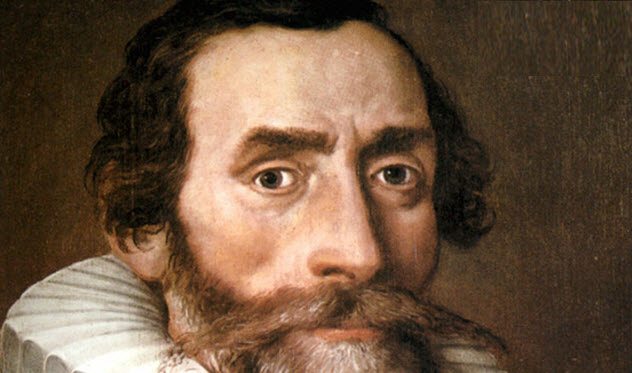
One of the first science fiction novels in history was written in 1608 by Johannes Kepler, the man who discovered the laws of planetary motion.
Somnium is the story of a 14-year-old Icelandic boy who becomes interested in space after meeting astronomer Tycho Brahe. The boy’s mother encourages his budding interest in science, as any good mother would do, by performing a dark ritual to summon a horde of demons to carry her boy up into the frozen depths of outer space.[9]
There, the boy meets an interesting species of space aliens. They live on the dark side of the Moon and look at Earth through a telescope. And then, because Kepler isn’t exactly famous for his ability to craft a story, the whole thing ends with the narrator waking up and realizing that it was all a dream.
Kepler wrote the book to try to defend the idea that Earth is in motion. Which is kind of crazy—because that means that the first time someone realized we were on one of many planets in motion around the Sun, he immediately started writing stories about aliens.
1 Dick Cheney’s Wife’s Lesbian Love Story

“Gay rights activist” isn’t exactly what comes to mind when you think of the Cheney family. After all, Dick Cheney served as vice president under the man who tried to pass a constitutional amendment to ban gay people from getting married in the US.
However, most people don’t know about the writing career of his wife, Lynne Cheney, or about her most popular book, Sisters, a story of lesbian love in the Wild West.
Believe it or not, this is an excerpt from a book written by the wife of Dick Cheney: “The women who embraced in the wagon were Adam and Eve on a dark cathedral stage—no, Eve and Eve, loving one another as they would not be able to once they ate of the fruit and knew themselves as they truly were.”[10]
Surprisingly, Lynne’s not the only Cheney who supports gay rights. Dick and Lynne’s daughter, Mary, is an openly gay woman married to another woman.
Despite working for President George Bush when he supported a constitutional ban on gay marriage, Dick Cheney went on record as disagreeing with his boss during their election and reelection campaigns. After acknowledging that the issue directly affected his family, Cheney said in 2004 that he believed that the decision on gay marriage should be left to individual states, but “people . . . ought to be free to enter into any kind of relationship they want to.”
However, Cheney also said that Bush was responsible for the administration’s policy on gay marriage and that Bush had made his decision to endorse a constitutional ban on same-sex marriage.
Read about more famous historical figures with bizarre secret lives or hidden talents on 10 Famous Historical Figures With Bizarre Secret Lives and 10 Historical Figures With Hidden Talents.

